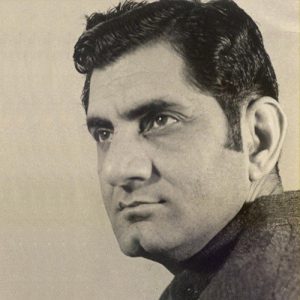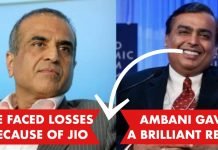If you follow Bollywood and know the when and how of it, Anand Bakshi could not be any new name to you.
He is the pioneer of bringing the Bollywood music into the mainstream and one of the most celebrated musicians of all times!

Born in the Rawalpindi (now Pakistan), the early life of Bakshi was torn along with the partition of 1947.
It was the night before 15th August 1947, when sirens flared and everyone was suddenly informed that they had just an hour before rioters arrived and burnt down their homes.
Families had merely an hour or two before they left behind their ancestors, their roots, their soil– their homes. Anand was just a brooding young adult of 17 then.
He saw his family going mad and rushing to grab whatever money, clothes and personal items they could get their hands on before the chaos strikes.
That night, hundreds of others fled from their homes in Rawalpindi and traveled straight to Delhi.
After the Indo-Pak divide, Anand joined the Indian Army Corps of Signals in Jabalpur and served them for nearly six years.
Besides being a fighter, the Anand Bakshi was also a devoted poet at heart.
In 1950, one of his poems was published in a daily Army publication called the ‘Sainik Samachar’.
This boosted his confidence and he decided to try his luck as a full-time lyricist in Hindi films.
In April 1950, he resigned from his service and traveled down to Bombay to quench the value for his dreams.
But as he reached the city of dreams, the mayanagri threw him down with no significant breaks or opportunities. And soon, he ran out of money.
Realizing his failure, he returned to the army, got married, and returned to Jabalpur.
But this fallen wasn’t a giver. He kept on writing and again in 1956, returned to Bombay. This time he was laced with his armory of with 60 quality poems and a stronger willpower to find work.
He also qualified himself as a motor vehicle driver as his ‘Plan B’. In case he didn’t succeed in finding a job as a songwriter; he could always drive a taxi or work as a motor mechanic. But Mumbai couldn’t beat him now- that was for sure
However, the history repeated itself, and again within a few months in 1956, he ran out of money again and lost hope of ever making it as a songwriter. Despite having the Plan B, he again decided to return to his army job.
One of those days in Bombay, he was attempting to take the train back home when a ticket inspector named Chitramal Swaroop caught him without a valid ticket and asked him to pay a fine.
He looked all rugged down and had not even a single penny to spend down in his empty pocket. But Chitramal pitiful of his poor condition asked him if he had eaten, bought him some food and asked him what he is doing in Bombay.
He told Chitramal everything and said he had lost all hope of becoming a lyrics writer.
He had decided to return to his army job and his wife. A patient Chitramal asked the young man to narrate a few of his poems.
After hearing his works, Chitramal was totally impressed and asked him to be his guest until he finds a day job.
With only a few poems that he had heard, Chitramal had believed, and rightly so, in this man’s talent. He would give him a pocket money of Rs. 2 every day to eat and travel.
By the end of 1956, he got his first break in a Hindi film by Bhagwan Dada, a well-known actor, and film director.
While sitting outside his office, the aspiring songwriter in question overheard that a lyricist had not turned up, causing much stress to Dada. So he mustered the courage, directly walked inside his office and was immediately put on the job.
But he established himself only by 1964 when the film Jab Jab Phool Khile became a huge hit.
His songs became popular across the entire nation. After that, he found another big break with Milan in 1967; and after this feat, he never lacked work as long as he lived.
He became one of the most celebrated and iconic lyricists in the history of Indian Cinema.
The legendary music composer and writer took his last breath in 2002.
In hai entire tenure, Anand Bakshi has written nearly 3,300 Hindi song lyrics, for nearly 630 films.
Some of his top songs, like the exceptionally famous “Dum Maro Dum”, enjoy a cult status among masses and have been remixed time and again, portrayed and performed by various contemporary artists.
Anand Bakshi found the light when the night was darkest for him. All he kept with himself was hope and willpower. His life is a tremendous source of inspiration for everyone who dares to dreams big and is determined to try until it becomes impossible.









